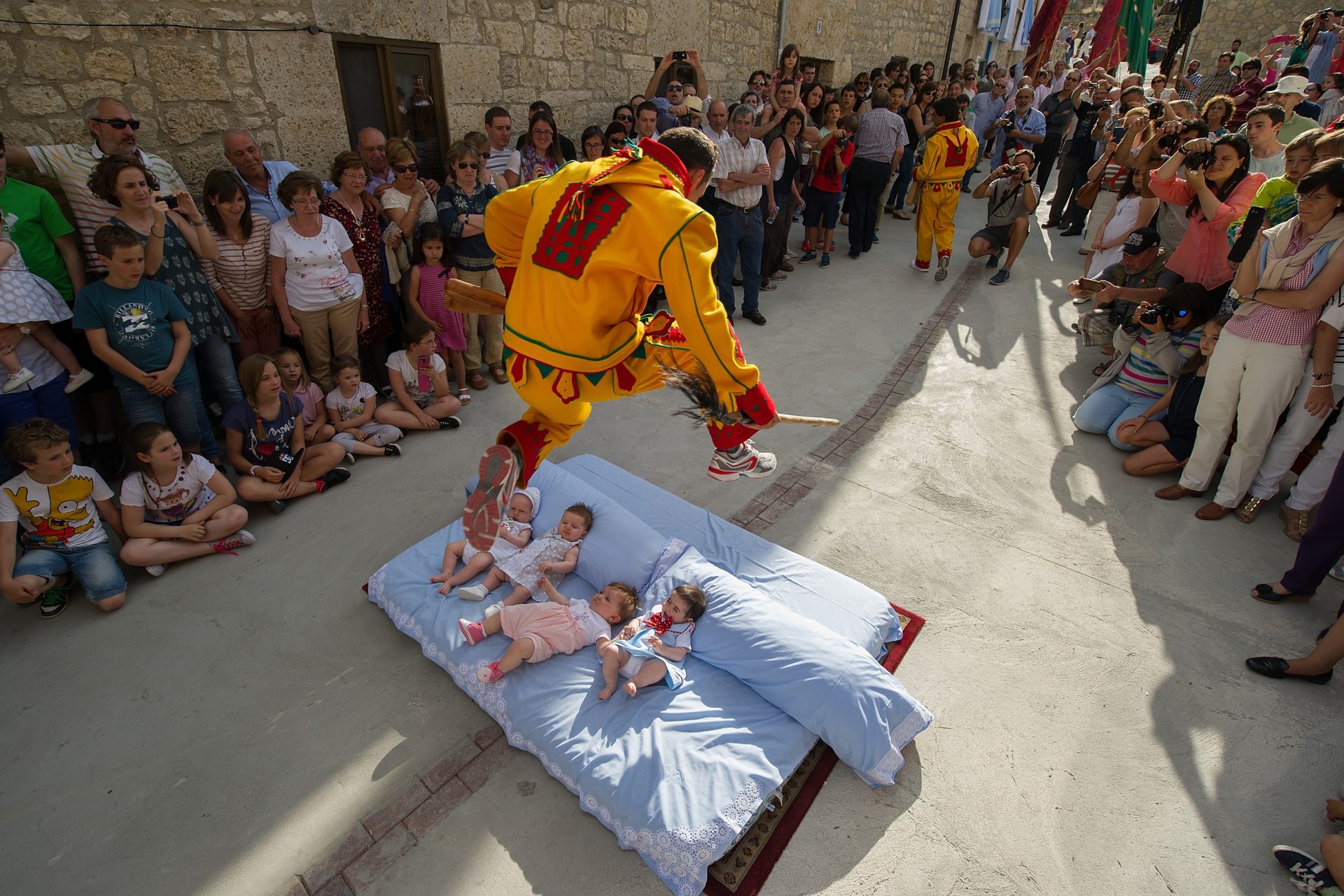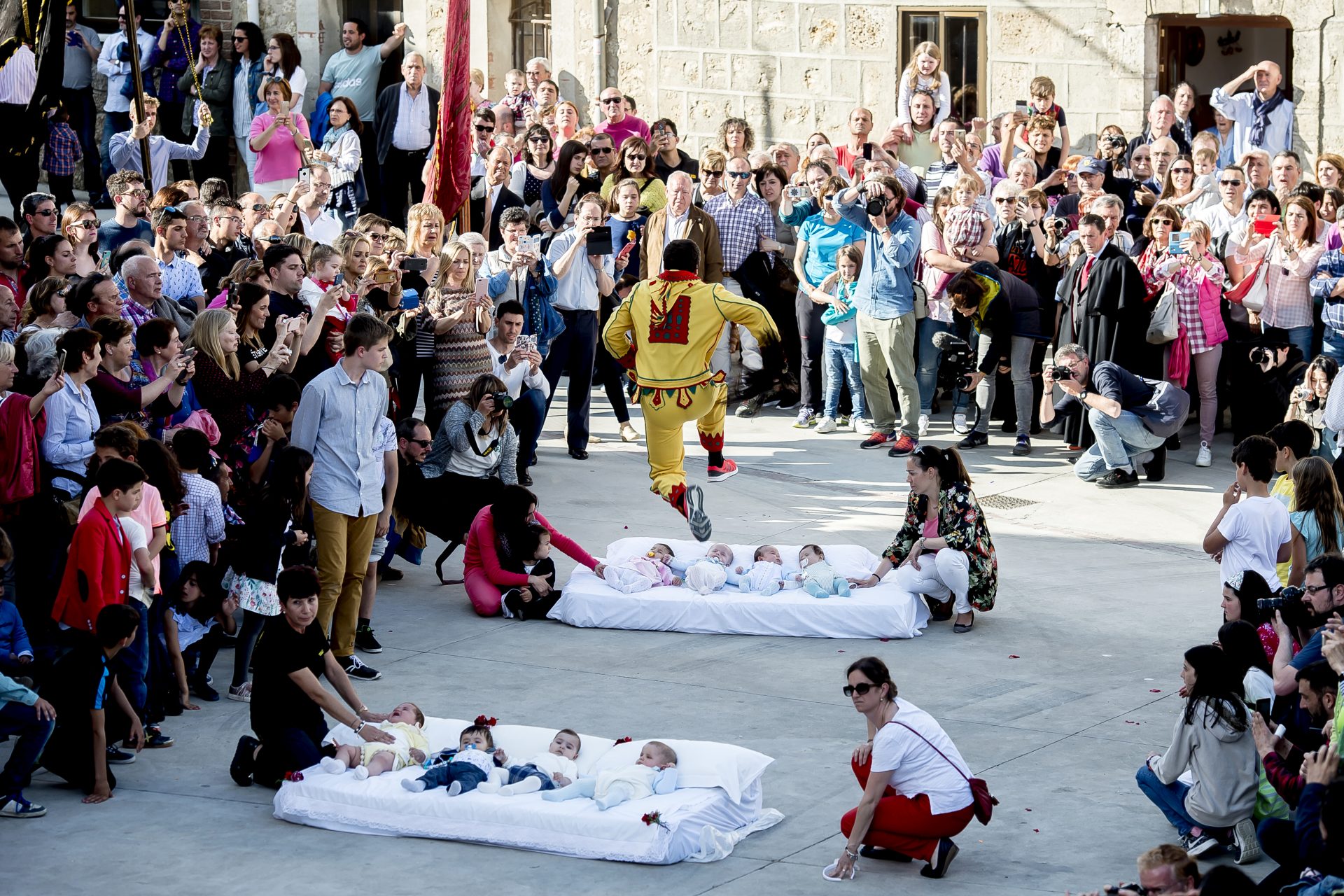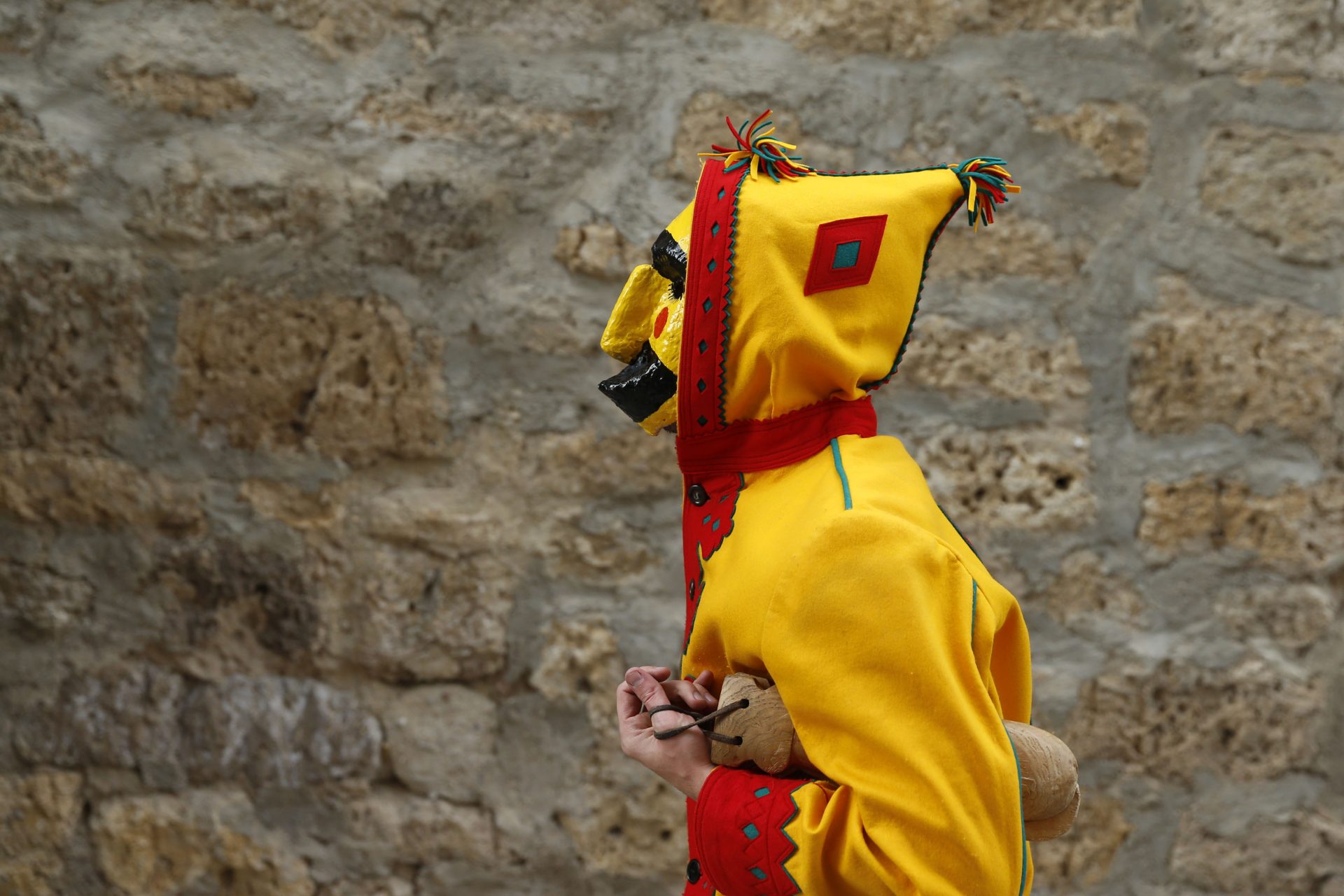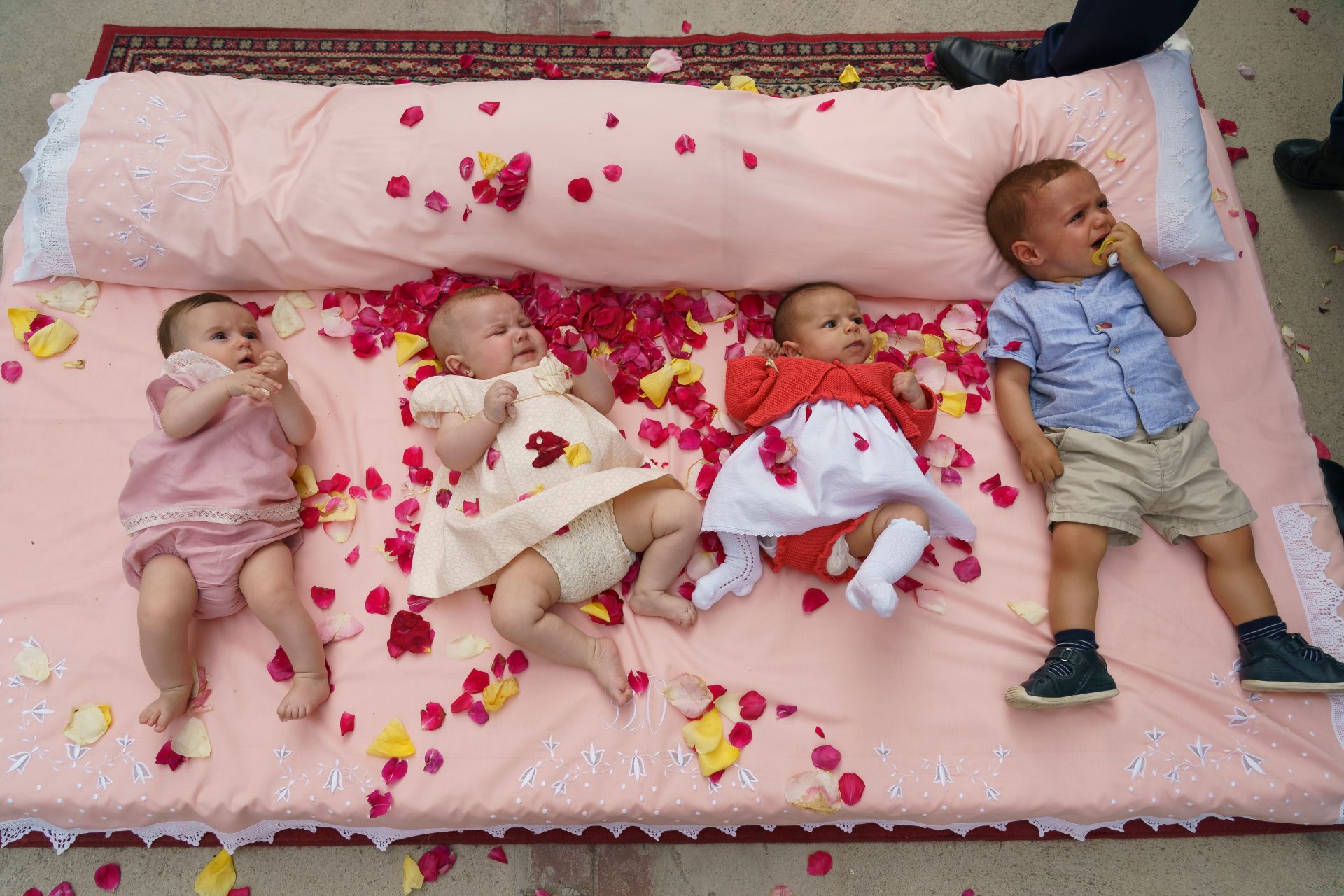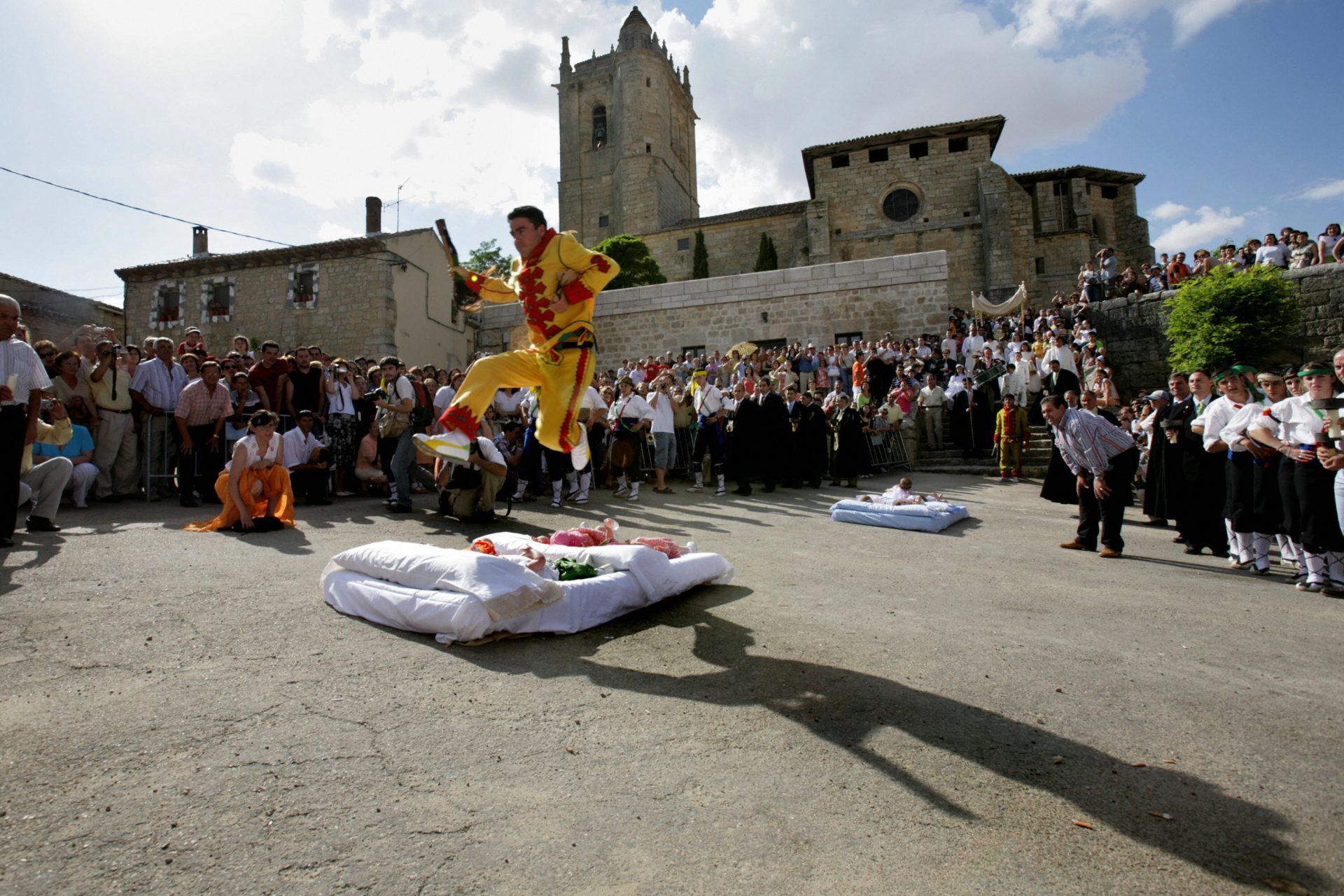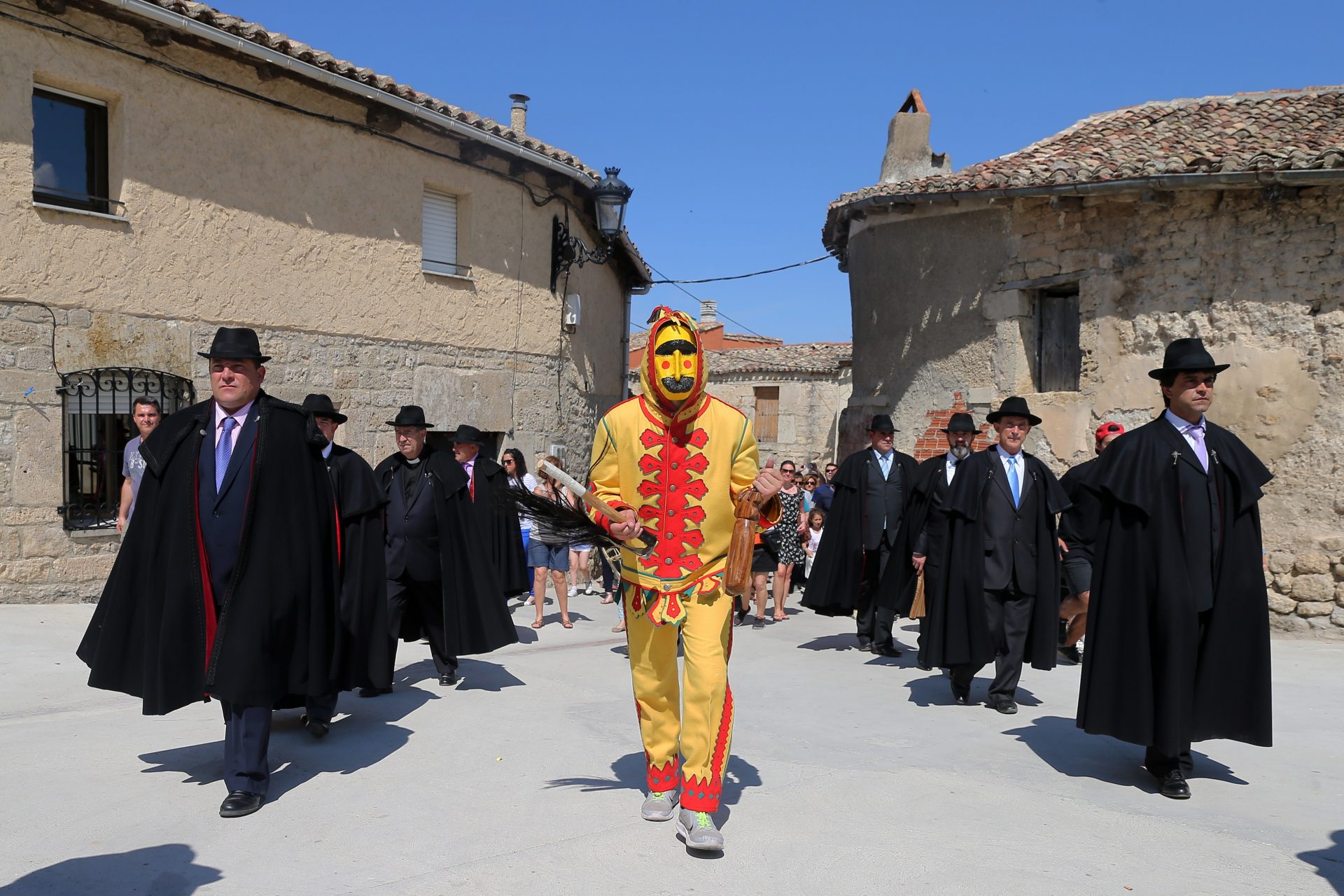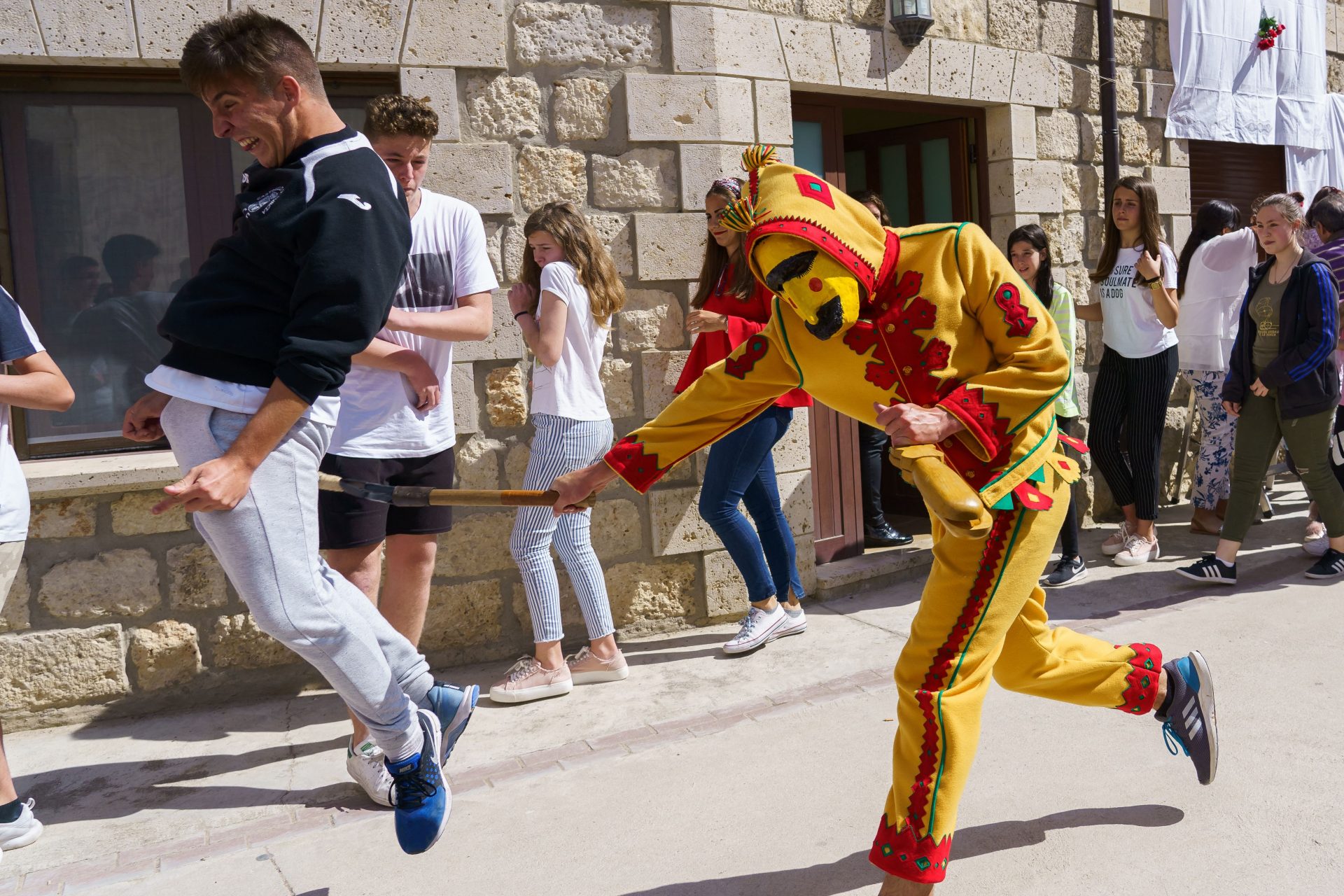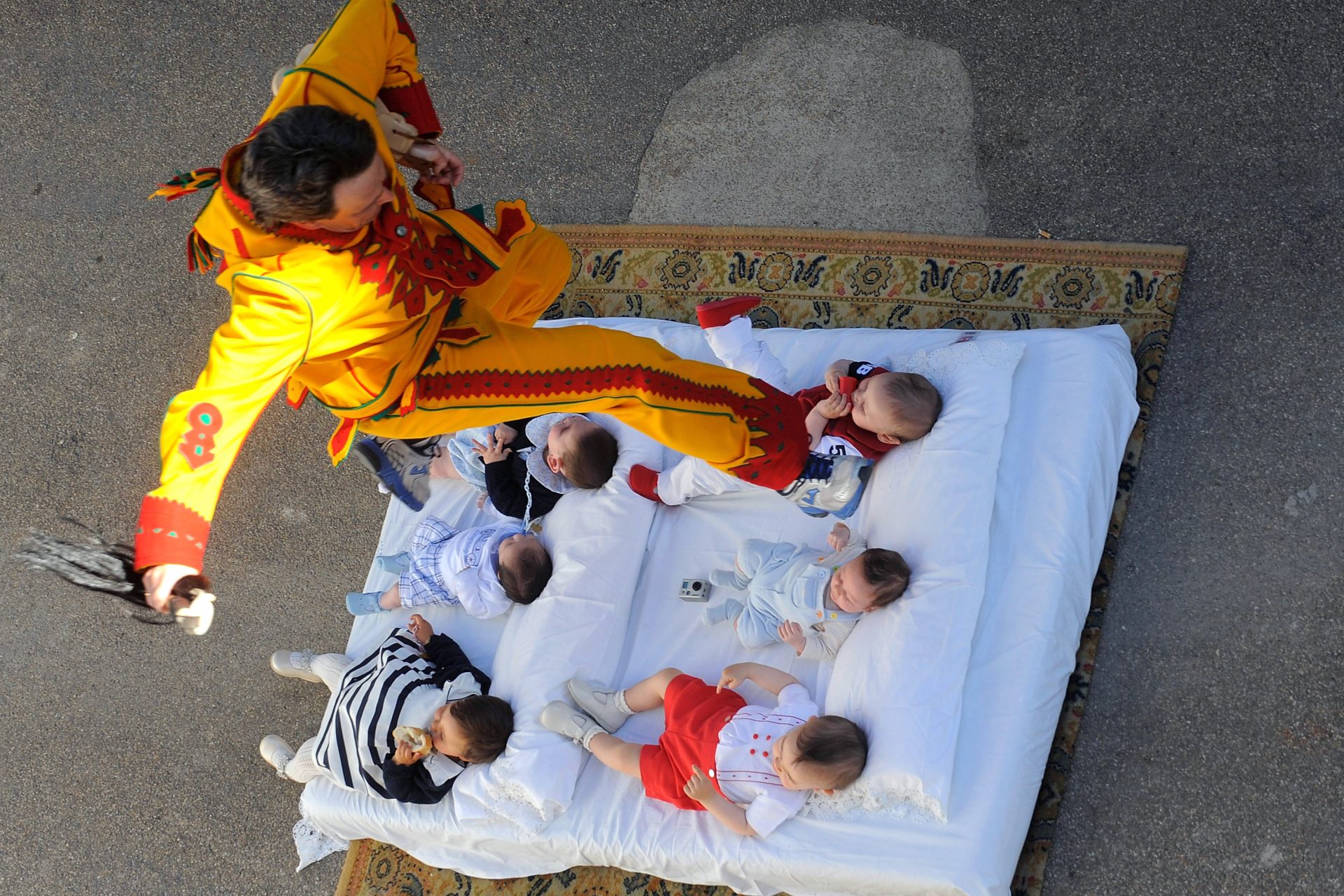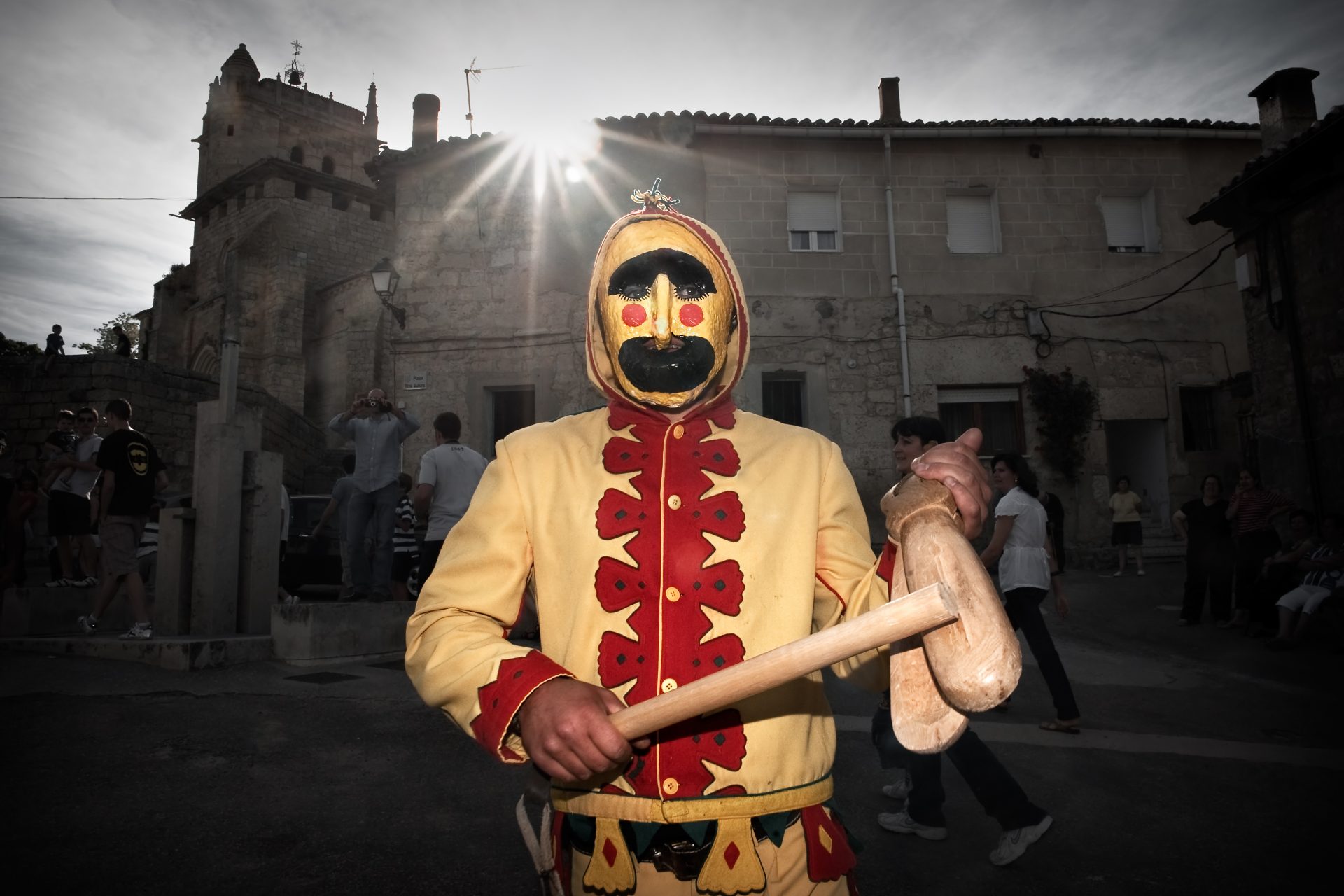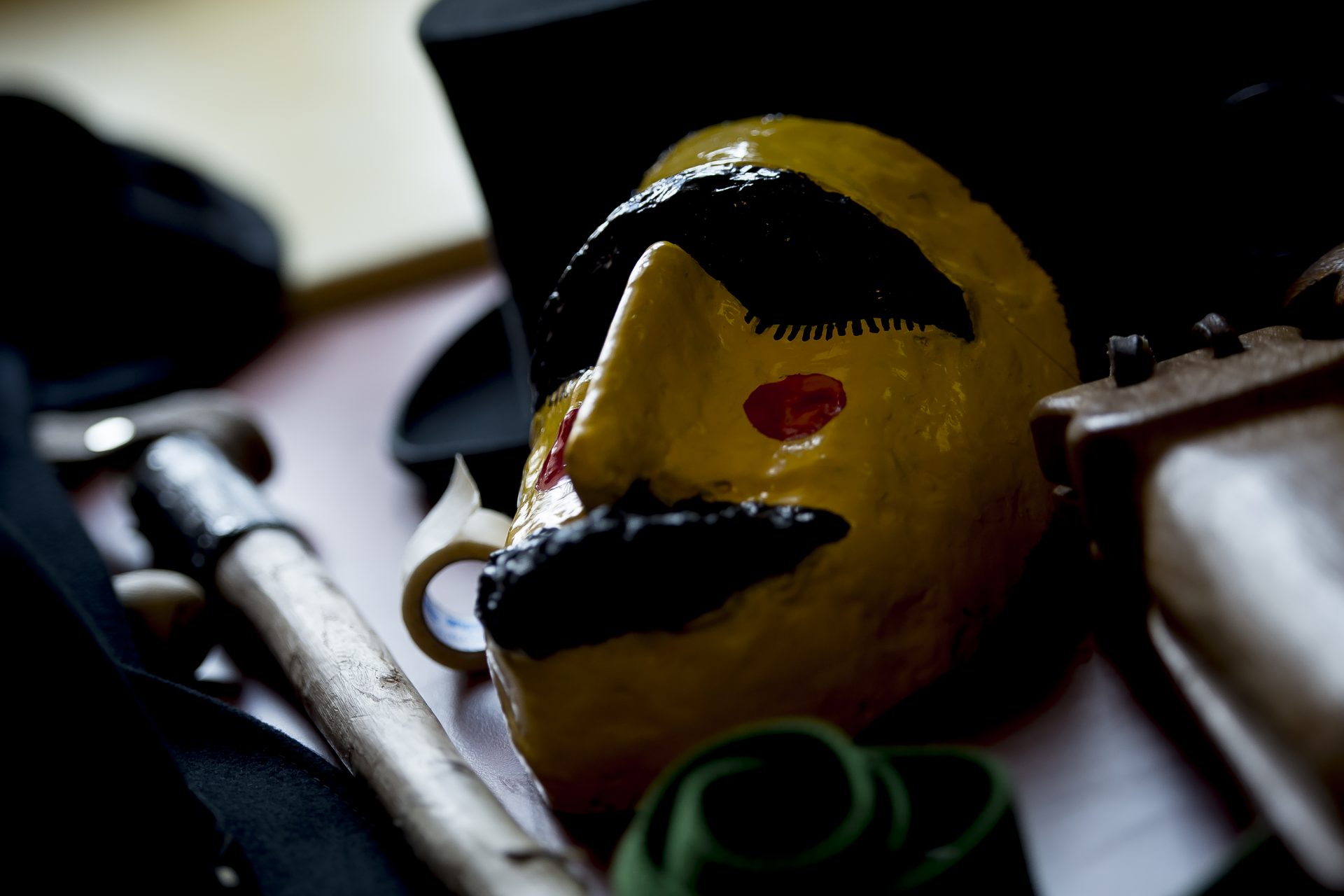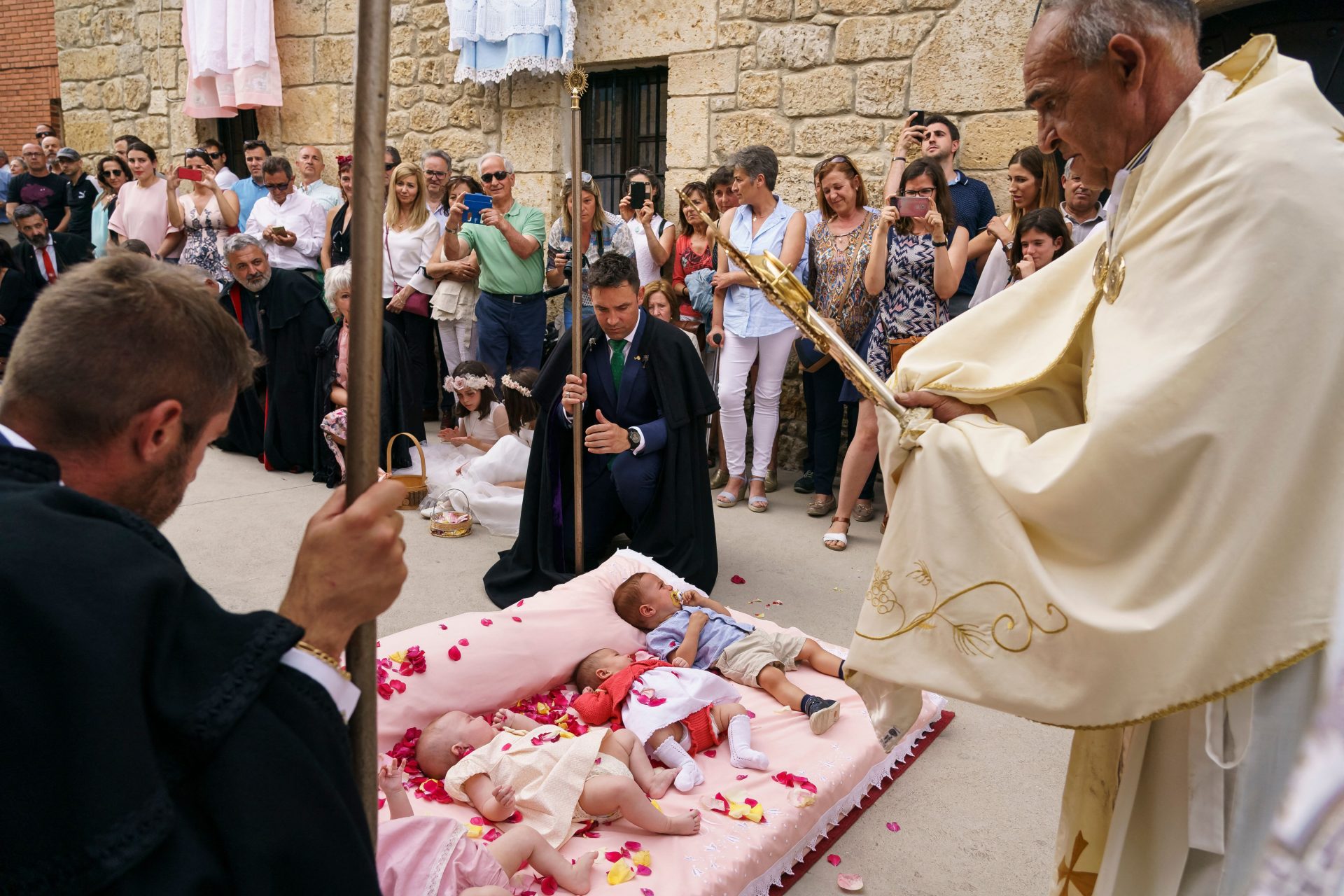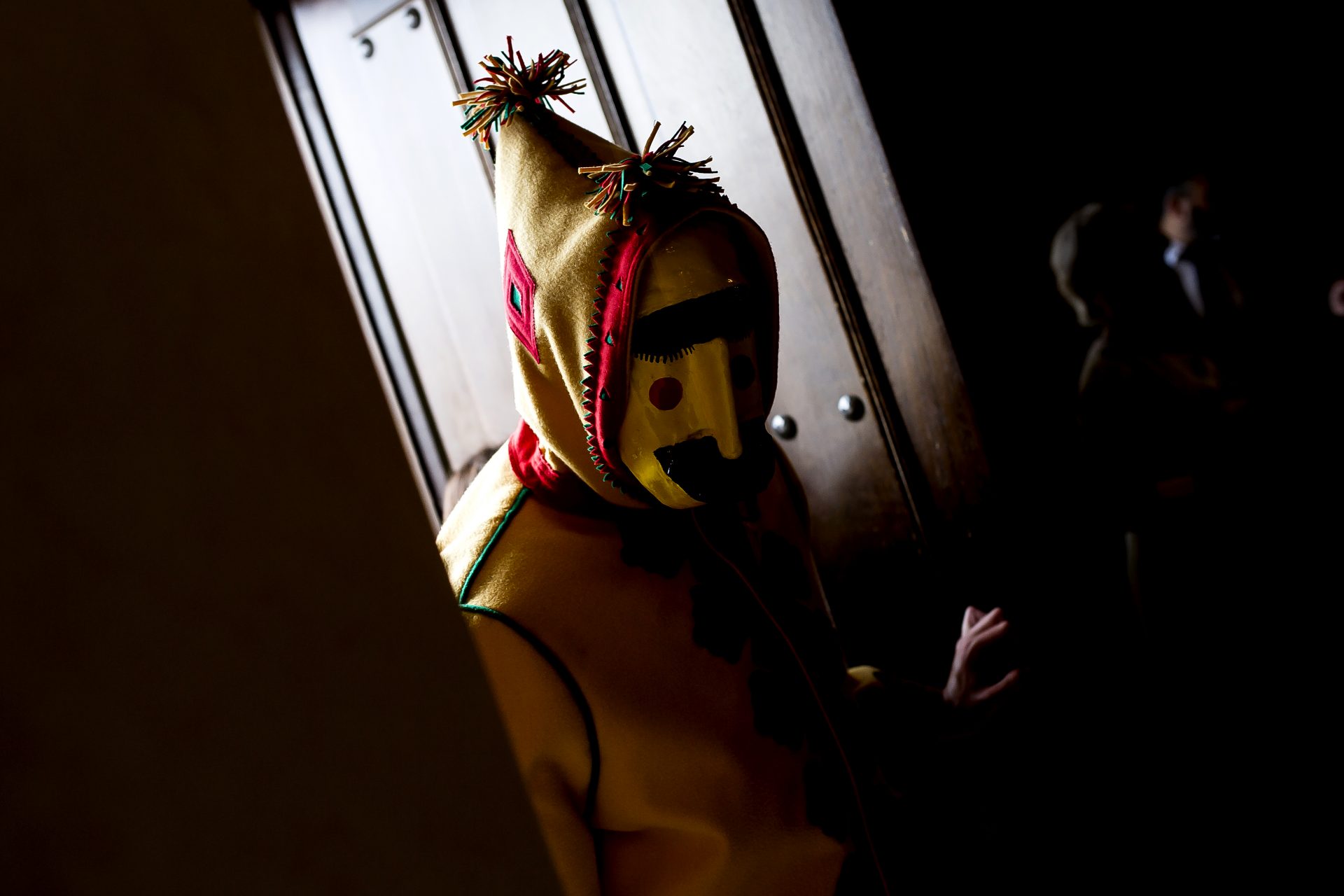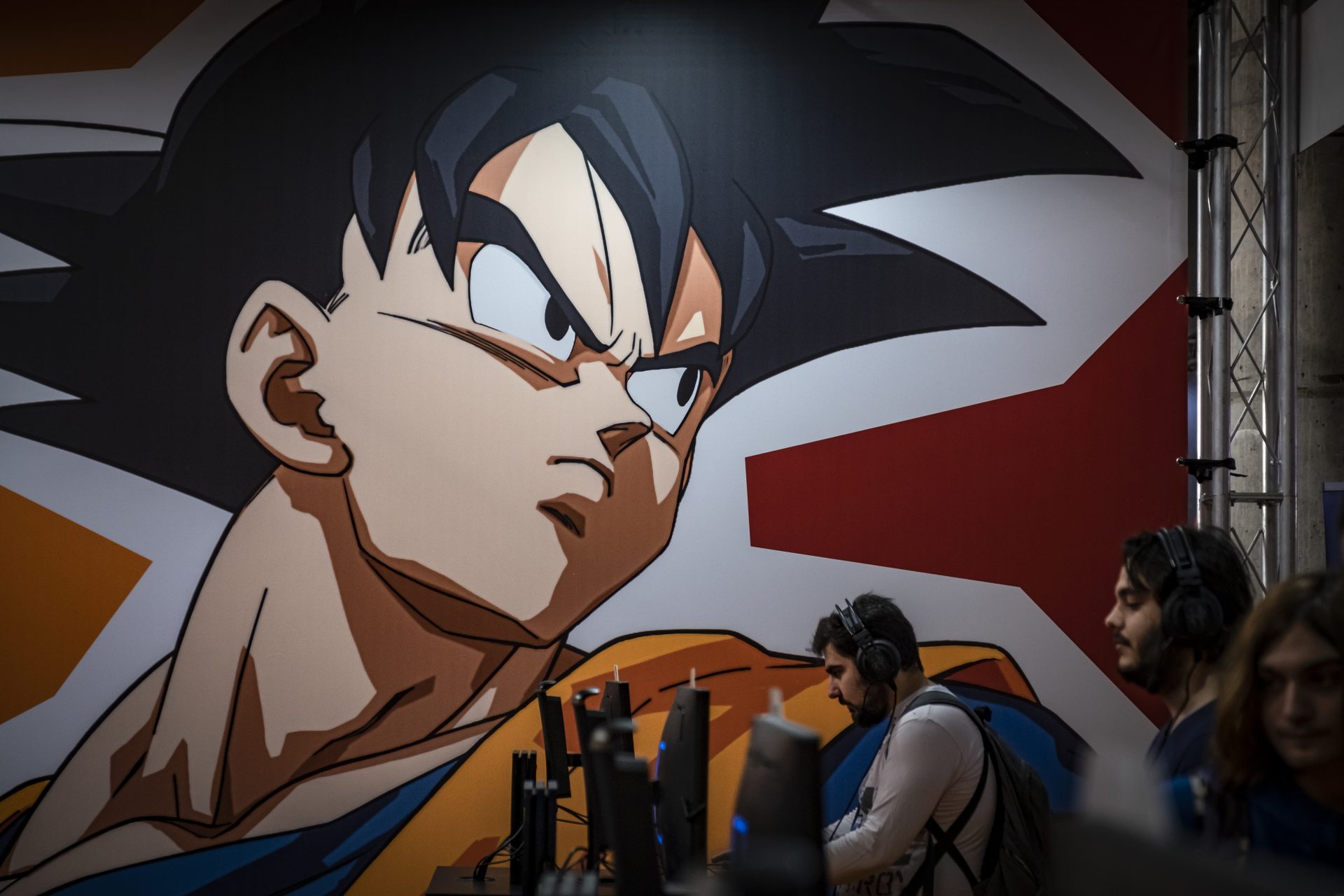Inside the Spanish festival where a devil jumps over newborns in the street
Traditions, celebrations, festivities, and all sorts of commemorations are commonplace across the globe. Naturally, some are more striking and peculiar than others, and this one definitely falls into that category.
Let's travel to Spain, specifically to Castrillo de Murcia, a municipality in Burgos, where once a year, 'El Colacho' leaps over babies laid out in a row in the middle of the street, much to the delight of parents and neighbors.
Don't want to miss the best cultural news and analysis? Follow us here!
In this celebration, Catholic and pagan elements are masterfully combined, seasoned with a bit of Carnival, history, and very good vibes.
'El Colacho' represents the devil and is a local dressed in a costume that's a cross between a jester and a devil, jumping over babies born in the village during the last 12 months.
This event takes place on the Sunday following Corpus Christi and has become a magnet for tourism, not just domestically but also internationally. It's not every day you see the Devil hopping over newborns.
'El Colacho's' mission is to disrupt and belittle the religious celebrations related to Corpus Christi, even going as far as mocking the town's priest.
And if babies and clergy get their share of 'El Colacho', so do the neighbors, whom he hits with a horse's tail as he passes.
"Throughout the route, locals erect altars of flowers so that 'El Colacho' can stop and jump over the children born that year in Castrillo de Murcia," says the Burgos Provincial Council's website.
And so, with a man in disguise and babies lined up on the ground, this small town of barely 200 inhabitants has made its name known and recognized all around the world.
With so few residents, Castrillo de Murcia has long since opened its doors for babies not born in the town to be laid out for 'El Colacho' to jump over.
From children of relatives or people connected to residents, to newborns from neighboring towns, all babies are welcome to the delight of 'El Colacho' and the preservation of the tradition. However, a donation is typically requested, ranging between 10 and 20 euros per baby. After all, 'El Colacho' needs to survive the rest of the year.
To trace the origin of this festival, one must go back to the 17th century, as pointed out by the Sasamón City Council, which encompasses the municipality of Castrillo de Murcia.
Don't want to miss the best cultural news and analysis? Follow us here!
It's a burlesque mime that symbolizes the devil inciting evil or heresy until he is overcome by the faith of the villagers. What's truly remarkable, as confirmed by the City Council, is that this tradition has been maintained uninterrupted from its inception to the present day.
And while you may wonder if the Colacho has ever hurt the babies, as far as media reports go, no babies have been harmed in this festival. Instead, parents believe that tradition helps clean them of any sin.
Indeed, Spain is known globally for its huge variety of wild fiestas. Perhaps the most famous of which is the Running of the Bulls in Pamplona, where party-goers volunteer to be chased by bulls around the streets. There, yes, many people are harmed each year.
Another legendary one is La Tomatina, which is basically a super massive food fight with tonnes and tonnes tomatoes. It takes place in Buñol, Valencia.
Don't want to miss the best cultural news and analysis? Follow us here!

